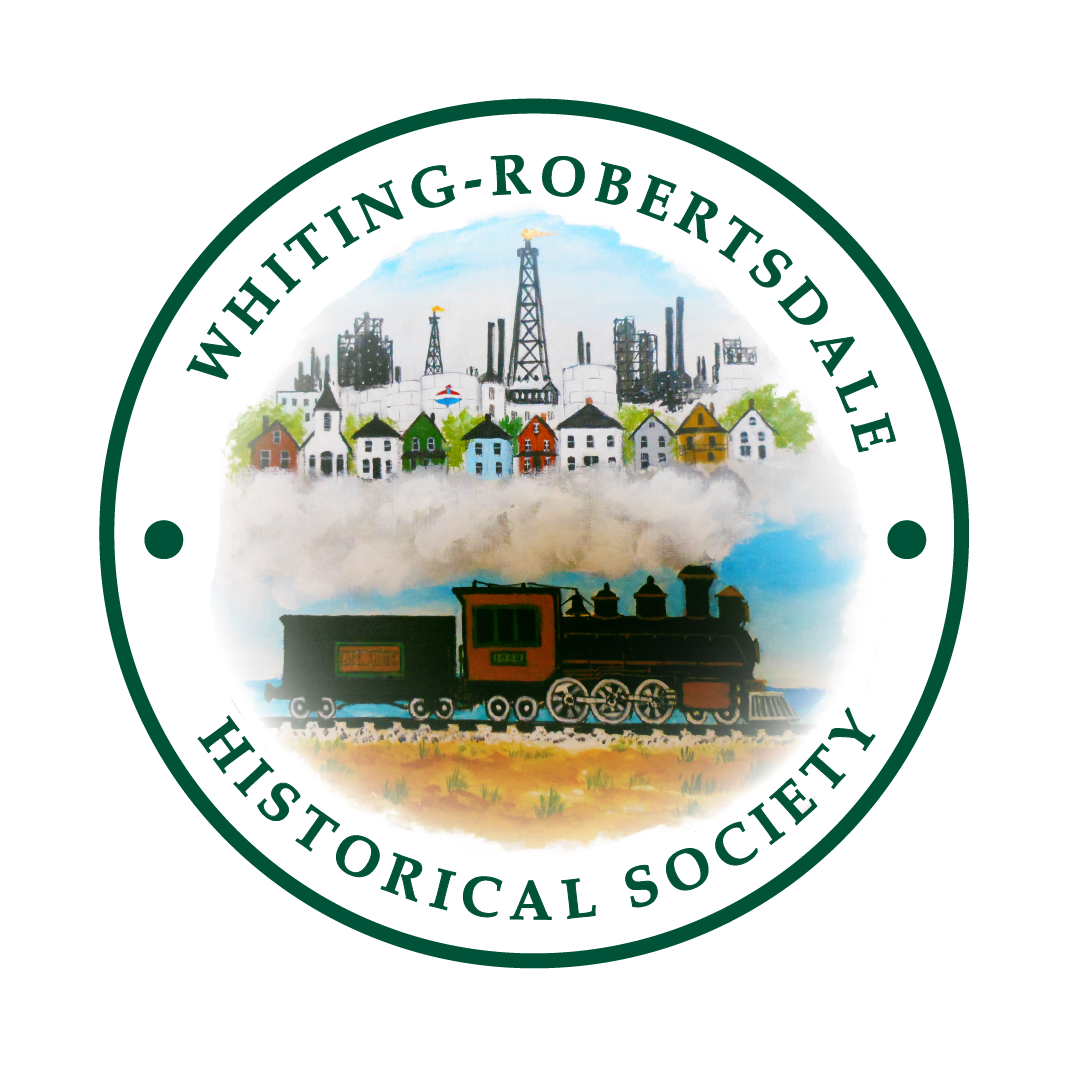The Great Chicago Fire broke out on October 8, 1871. It was almost certainly visible to the handful of people who lived in what was then the small settlement of Whiting. But few of them probably had the time to watch what was happening across the waters of Lake Michigan, because on that same date a massive fire was threatening their own lives.
We have the creators of a publication called the 1911 Whiting City Almanac to thank for preserving the details of what happened in Whiting on that date. In it, they have an interview with Oliver Forsyth (1856-1923) who talks about it. Here are the words of Oliver Forsyth about what was happening in Whiting on the day of the Great Chicago Fire:
The year of 1871 was a year of drought. The whole country was burning up through lack of rain. My father was absent on a business trip in the east. I, though only 15 years of age, felt a great deal of responsibility. A dense cloud of smoke from northern forest fires darkened the sky over Lake Michigan. The marshes about us began to dry up, and filled, as they were, with the accumulation of centuries of vegetable matter, they became quite inflammable.
I became very uneasy especially as our house could not be protected against a fire in the woods and marshes. It was the house that my father had purchased from Dominic Mutter and its surroundings greatly endangered it. I urged my mother to bury our books, for our library contained about 1,000 volumes, and this we did, finally wrapping them in sheets and covering them with sand. We buried some other valuables, likewise. Meanwhile, the fires grew more frequent in the woods about us.
When my father returned from New York he insisted that the danger was not serious and that he had the books dug up and returned to the shelves in our library. Hardly was this done before the conflagration came.
The fire swept up to our homestead so quickly that there was little time to save anything of value. We almost saved our piano, but not quite. We had a faithful German working for us at the time who was helping to remove the piano when he suddenly dropped his end of the piano in the doorway to fetch his two dollar suit of clothes he had in the basement.
The fire also took many pigs and much valuable farm machinery. We all got into a big wagon and drove into a swamp where we dug holes in the moist mud and waited until we could be safe. We made our way to Casella, now Indiana Harbor, and from there along the shore of Lake Michigan to Berry Lake, where we stopped at the home of John F.K. Vater.
In the morning we boarded the Pennsylvania train at the Berry Lake station, a group of fugitives. When the west-bound train stopped at the station we learned of a greater calamity than ours. That same day, October 9, 1871, was the date of the Chicago fire.
Berry Lake, which Forsyth refers to, no longer exists. Standard Oil purchased the land and drained the lake so it could expand its refinery. The lake was located in the vicinity of East Chicago’s Marktown and the Whiting-East Chicago line in that area. The Forsyth home in 1871 was actually in today’s East Chicago, but it was located close to Whiting.
Another resident of the area at that time was Henry Reese, born in 1854.He also talked about the fire of 1871 in Whiting.
The year 1871 was terribly dry. Moisture disappeared from the marshes. September was a fearful month. When fire struck, even the soil would burn to a level of a foot beneath the surface. Where White Oak crosses 121st, the fire burned in the soil for two weeks.
After the fire, some in the Whiting area benefitted from its proximity to Chicago. Jacob Forsyth, the father of Oliver, made a good deal of money because as winter approached in 1871, residents of Chicago were desperate for fuel to keep warm. As a major landowner in the Whiting area, Forsyth sold as much $3,000 a month worth of wood to buyers in Chicago. In today’s dollars, that would be about $67,000 a month. Forsyth was fairly generous with the lumber on his land. If someone needed it to build a house in the area, he had no objection to them cutting down the trees. But he did everything he could to stop anyone form cutting trees for their own profit. He particularly kept a close watch for Chicago timber thieves.
Chicago and Whiting were not the only places burning in October 1871. Massive fires also hit Michigan, including the areas of Port Huron, Manistee, and Holland. More than 500 people died as fire ripped through the area along Lake Michigan’s Green Bay in Wisconsin.

